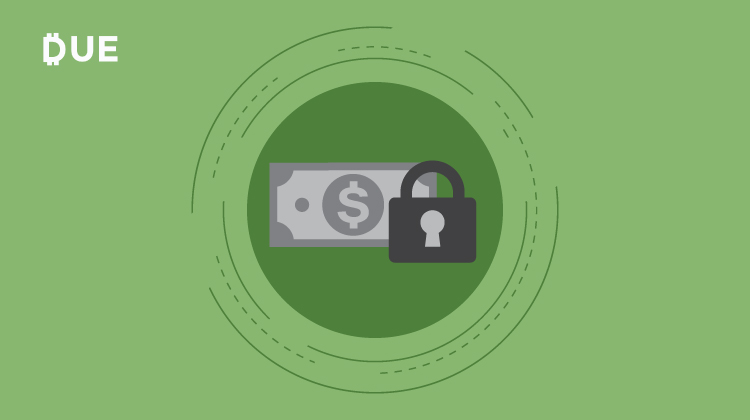Money may not buy you happiness. But it certainly can improve your life mainly because it ensures that you have your basic needs met. I know what I’m saying — I’ve lived with and without money, then repeated that cycle. You don’t want to be in retirement without savings built up. Building a savings plan will relieve stress in the long run.
When you have enough to cover the necessities, you can chip away to build a savings plan. Why? Because it can greatly reduce financial stress — which is often cited by the majority of Americans as one of the most common sources of stress.
Stress, if you weren’t aware, can impact your physical and mental health. Moreover, it can put a strain on your relationships. And it may also impact the quality of your work performance.
But, there are some additional benefits to saving money. It helps you build self-discipline and confidence. It can also improve your credit score and open the door to endless possibilities — like owning a home or traveling.
And, as 2020 as proven, saving ensures that you can handle a crisis. No matter how well things are going, you just never know when a game-changing event will turn your life upside. It could be a global pandemic, natural disaster, or loss of employment. Those situations are already stressful enough, so having something stashed away can at least reduce some of the weight.
While it won’t completely absolve all of your stress, having a savings plan will relieve most of it. But what if you don’t have a savings plan in place? Well, here are 10 tips on how you can accomplish that goal.
Table of Contents
Toggle1. Focus on the positive.
Will changing your mindset to think more positively magically alleviate all of your financial stress? Of course not. But, being preoccupied won’t help either. In fact, it may make matters worse.
“When our brains go negative, that can eat away at our productivity, creativity, and decision-making skills,” explains Angela Ruth in a previous Due post. “That’s because negative thoughts tend to have a bigger impact than positive thoughts.” The reason? Evolution.
“Survival depended on being able to detect and avoid dangerous situations,” adds Angela. Even worse? Negativity can cause physical alignments, depression, and social withdraw.
One way to train your brain to think more positively is to focus on 3 daily positives. “Before you go to sleep, you can easily train your brain,” suggests Angela. “Reflect on your day and think about three specific good things that happened to you that day.”
It could be something as small as getting a compliment at work, receiving a cash-back reward, or opening up a savings account. Other suggestions would be downloading a free budgeting tool or being thankful that you have a job that provides a generous 401 (k).
2. Develop a spending plan.
While focusing on the positive may make you feel a little better, you still need to develop a realistic spending plan. It’s the only way that you will finally build a savings plan. And, when you do, you’ll have some peace of mind.
If you have never done this before, it may seem overwhelming. Thankfully, the good folks over at Mental Health America have a 4-step plan to get you started.
- Step 1: Know your income. Know how much money you expect to bring in, as well as when.
- Step 2: Know your regular expenses. Take a look at what you spent money on last month. Primarily focus on rent, utilities, insurance, groceries, and entertainment costs. Don’t forget about transportation, medication, personal, and debt repayments.
- Step 3: Take all of the information above to create your spending plan, aka a successful budget.
- Step 4: Print out the Daily Spending Journal From The National Endowment For Financial Education’s (NEFE) Guide “Your Personal Financial Growth.” Writing down what you spend money will help you in determining what expenses to cut. It may even help you keep expenses from creeping up.
The most important takeaway here is to start small. For example, you save money a little at a time. For example, if you plan on traveling next year and flights cost $1,200, you could set aside $10 a month.
3. Address the “what if’s.”
We’ve all been here at some point. You’re on your way to work, and your car breaks down on the highway. While you can call someone to let them know you’ll be late or can’t make it in, your main concern is how much this will sting you financially.
Between towing and repairing your vehicle, you could be looking at hundreds of dollars. That’s a huge burden if you don’t have that money stashed away. In fact, nearly 4 in 10 Americans would have to borrow money to cover a $1,000 emergency.
Ideally, you should always have at least six months or more of essential living costs in your savings account. If not, begin building your emergency fund today. Again, start small by setting aside a couple of bucks each month.
But, if you really want to step-up your game, you may have to make some sacrifices. Maybe you could skip the gym membership and rely on free videos online. Do you take an annual vacation? Skip this year and put those funds into your savings account. Or, perhaps side hustle for a couple of months.
If you chip away at this, these sacrifices will only be temporary. And, best of all? We’ll have an emergency fund whenever you need it.
4. Tackle your debt.
Speaking of giving things up, this is another tactic to get yourself out of debt. After all, debt is holding your back from achieving financial independence. And, it can definitely take a toll on your mental health — it’s not a great feeling when your hard-earned money is only going towards interest.
Until your debt-free, you should give up things like going out to restaurants, vacations, gym classes and memberships, and gifts. If you have vinegar, you might be able to pass on cleaning products. And, maybe you could give yourself a haircut instead of going to a barbershop.
Other suggestions would be cutting cable, buying generic products, or becoming an extreme couponer. And, when all else fails, refinance your loans or take out a personal loan or home equity line of credit (HELOC) to consolidate your debt.
5. Set it and forget it.
Let’s be honest. Even though you know you should be saving and cause you to stress, it’s not always on the top of your mind. I mean, how many times have you blurted out, “I’ll get to my savings plan next month.”
Of course, that timeline comes and goes. Next thing you, it’s been years since you made this declaration.
The solution? Establish an automatic savings plan. For example, you could automatically transfer 10% of your paycheck into a savings account. There are even apps like Acorns and Chime that will save your spare change.
6. Keep the lines of communication open.
Opening up about your finances isn’t the most pleasant over conversations. However, sharing your concerns with your spouse or partner can curtail your stress. What’s more, this will give you a chance to come up with a plan together.
Better yet? You can help keep each other accountable. For instance, if you want to go out to dinner, they may suggest that you make a romantic meal at home instead.
What if you’re single? No worries. Enlist the services of a trusted friend or family member.
7. Stop comparing yourself to others.
I’ve certainly fallen into this trap. You go on social media and see everyone sharing pictures of exotic trips, luxury vehicles, fancy meals, or home renovations. Naturally, you get a little peanut butter and jelly.
The thing is, you don’t know what’s going behind closed doors. They could be in serious debt or work 60-plus hours a week. Or, maybe they’re spending money on items that you never would — like I have zero interest in ever purchasing a sports car.
Most importantly, people tend to share the best parts of their lives. So, while it may seem like they’re happy, this could be the opposite.
In short, try to avoid social media if what you see bothers you. If this isn’t an option — just keep telling yourself that you’re living the life you want.
8. Take charge of tomorrow.
Benjamin Franklin once famously said, “Don’t put off until tomorrow what you can do today.” And that definitely can be applied to your savings plan.
As soon as you’re done reading this, roll up your sleeves, and get to work. Start by developing your own savings plan and find ways to set money aside. From there, work on eliminating your debt, ramping up your contributions, or improving your credit score.
9. Seek outside help.
There’s no shame in asking for help — especially when it comes to finances. Work with a financial planner who can help you design a long-term saving and investing strategy. Or, sit down with a credit counseling service if you want to restructure your debt — the may even negotiate with your creditors.
10. Stay calm and save on.
Finally, take a deep breath. While this was a lot to take in, just remember to start small and track your progress. It might not seem like much. But, it will add-up over time. And, most promising, it will keep you motivated to keep up with your savings plan.
















